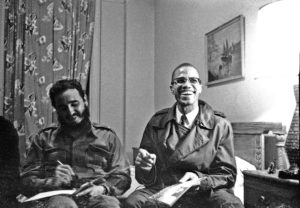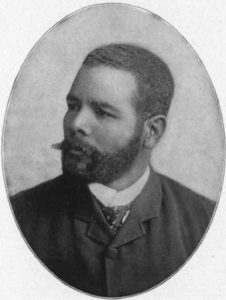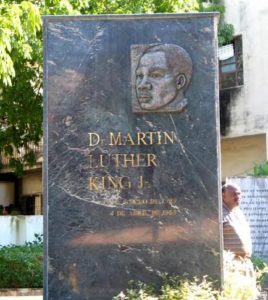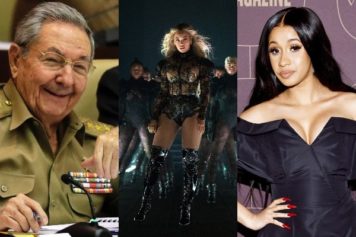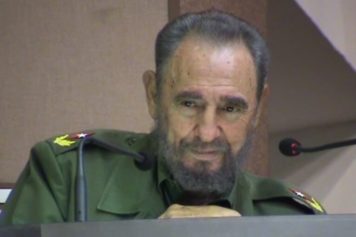For the first time in over 60 years, in what seems like an alternate reality, there is a Cuban flag flying over the Cuban embassy in Washington, just as the United States mission in Havana was once again established as an embassy. In 1961, the two nations broke diplomatic ties, as their respective embassies were shuttered, until now.
As Dewayne Wickham reminds us in The Root, African-Americans should want to travel to the island nation in droves due to the connections between people of African descent in Cuba and in the U.S. In order to explore those ties, Wickham offers, “African Americans have to take advantage of the
opening Obama has given us to visit this country and discover a chapter of black history that we have been denied access to for far too long.”
For example, Wickham noted that as the Plessy v. Ferguson decision legalized segregation in America, Cuba fought for its independence against Spain with an integrated army and the leadership and Antonio Maceo, a Black man who was second-in-command of the one of the leading figures in the Cuban independence struggle. As Harvard professor Henry Louis Gates described in the PBS series, Black In Latin America, Maceo—along with the war of independence— underwent a whitening process by racist Cuban elites.
When the U.S. military occupation came into Cuba, it forced its Jim Crow segregationist regime onto the country, in cooperation with the Cuban elite that had maintained slavery, replacing one form of colonialism with another. This included the massacre of thousands of members of a political party founded by Black Cuban war veterans to fight the American-imposed segregation.
Formed by the descendants of slaves who made up the Mambi Army, El Partido de Independiente de Color (PIC) or the Independent Party of Color, became the first 20th century Black political party in the hemisphere. The party encouraged racial pride and self-respect, and demanded racial equality and rights for Black people in the newly liberated Cuba. In 1912, the government wiped out this political force, which had been portrayed in the Cuban press as monkeys and rats that would eat whites alive, killing 6,000 Black people.
And there is the Martin Luther King Center in Havana, which is built next to the Ebenezer Baptist Church. The King Center, a center for social change and solidarity in Latin America, bears a monument to the civil rights icon and human rights leader. Next to the King monument is a memorial to Malcolm X. In 1960, Malcolm X met with Fidel Castro when the Cuban leader came to New York to address the United Nations General Assembly. Castro stayed at Harlem’s Theresa Hotel as a show of solidarity with African Americans.
A number of members of the Black Panther Party, including political prisoner Assata Shakur, fled to Cuba to escape persecution in the states, where the FBI under J. Edgar Hoover’s COINTELPRO program monitored, infiltrated and decimated Black liberation groups, imprisoning and killing their leadership. Further, Cuba was actively involved in the anti-apartheid movement and the struggle for liberation in South Africa, taking on the South African army in Angola.
“The Cuban people hold a special place in the hearts of the people of Africa. The Cuban internationalists have made a contribution to African independence, freedom and justice, unparalleled for its principled and selfless character,” said Nelson Mandela during his 1991 visit to Cuba. “We in Africa are used to being victims of countries wanting to carve up our territory or subvert our sovereignty. It is unparalleled in African history to have another people rise to the defense of one of us.”
There is a rich history in Cuba that should interest African Americans. With the restoration of diplomatic ties between the U.S. and Cuba, there are more opportunities to visit and learn.
